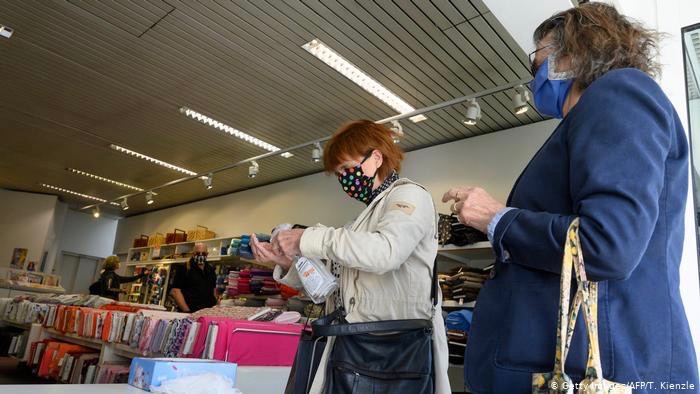On April 23, Thursday, the German government headed by chancellor Angela Markel announced a package to cushion the impact of the COVID-19 lockdown on workers and small business owners in the country. The government has announced tax relief for small businesses along with measures to protect employee wages.
The details of the package were negotiated by the ruling coalition led by Markel’s conservative Christian Democratic Union (CDU) with the leaders of center-left Social Democratic Party and the conservative Christian Social Union of Bavaria (CSU) late on Wednesday night. The deal mainly provides respite to low-income workers and small businesses, such as the catering and hospitality sector.
German news website DW reported that the government is set to provide between 70 to 77% of the total net income of workers who are forced to sit home with up to 50% reduction in their work hours, if they are unable to find a full-time job even after four months. They are currently being paid about 60 to 67% of their total income. Those who still require support after seven months will receive between 80 to 87% of their salaries.
The relief payment will differ on the basis of the parental status of the workers, with those with children receiving the maximum percentage of their incomes.
The package includes monetary assistance of around USD 161 to all students from poor families for buying laptops to access online classes during the lockdown period. An increased period of unemployment benefits has also been offered.
For small businesses, a reduction in the rates of value added taxes (VAT) from the current 19% to 7% has been announced. The new rates will be effective till June 30, 2021.
The government’s relief package is estimated to be worth over USD 10 billion. This will be in addition to the more than USD 800 billion package previously announced in March.
Germany is one of the worst COVID-19 affected countries in the world, with more than 150,000 confirmed cases and over 5,000 deaths till April 23, Thursday. The government has imposed strict physical distancing norms and a lockdown to curb the spread of the virus, forcing most non-essential businesses to suspend their activities.
Meanwhile, on April 21, the government decided to soften some of the curbs on citizens and businesses imposed since March 23. According to the new guideline, schools will open from April 27 and small protests with a maximum of 20 people are now allowed, as well as social functions such as weddings and family gatherings of a small size. However, beginning from April 27, wearing masks will become mandatory for all.
Addressing the German parliament, Budestang, on Thursday, Merkel warned German States to show restraint in relaxing the lockdown norms as the success achieved so far was “provisional”, with a long way to go ahead. She emphasized the need for greater European and global cooperation in the fight against the pandemic and praised the role played by the World Health Organisation (WHO). The WHO has recently come under repeated US attacks, with president Donald Trump suspending funding to the UN agency after alleging a bias towards China.





